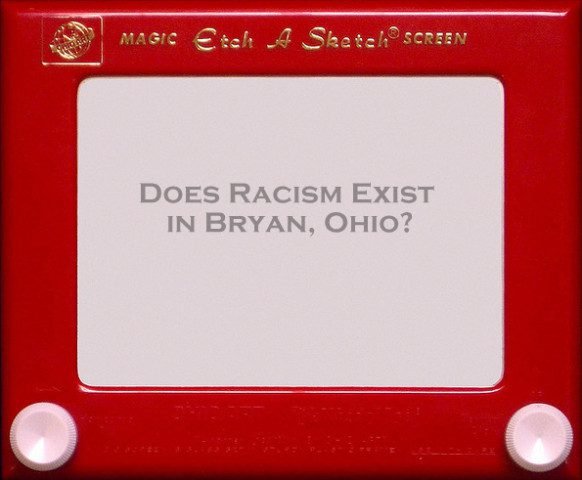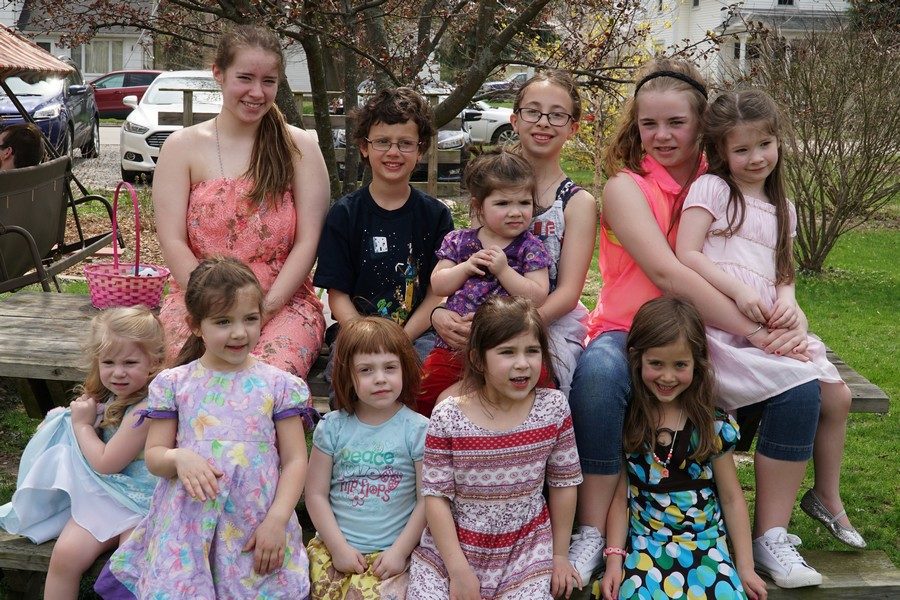
I grew up in a home where my parents rarely, if ever, showed affection to each other or their children. The Gerencsers weren’t huggers or kissers, and I can’t remember a time when my mom or dad said to me, I love you. I can’t remember a time when I was praised for doing well in school or in sports, nor can I remember being challenged to do better. The reasons for this are many. My mother was mentally ill my entire life. Mom spent two extended periods in the Toledo State Mental Hospital. She was prone to manic fits, and tried to kill herself more times than I can count. One time, I came home from elementary school to find Mom lying on the floor in a pool of blood. She had slit her wrists. She survived, but two decades later she pointed a Ruger .357 at her heart and pulled the trigger. She did not survive her last attempt, dying at the age of fifty-four. My dad was involved in all sorts of less-than-legal behavior, including fraud and illegally selling firearms. Fortunately, he avoided prison. He died at the age of forty-nine.
My parent’s fifteen-year marriage dissolved during the spring of my ninth-grade year. The only conversation my parents had with me about their impending divorce was Dad telling me that he and Mom no longer loved each other. Mom? All she said on the matter was to tell me that she would never speak poorly about my father. Life moved on without either of them ever giving an honest accounting to their children about why they divorced, leaving us to come to our own conclusions about why they were no longer married. It was Mom who filed for divorce, yet I don’t know why. I suppose Mom’s mental-health issues, Dad’s nefarious financial dealings, and our Gypsy-like moving from town to town to town led to their divorce. That, and whispered allegations of Dad’s affairs with other women.
I can look at my past and understand why I am not outwardly emotional. For good or ill, I passed this on to my children. Does this mean that I am, in some way, broken or defective? I don’t know. All I know is that I try to be more emotionally engaged with my wife and children. I’m not afraid to express my love for them, but I’m never going to be the person who hugs everyone or wears my emotions on my sleeve. That’s just not who I am. For the longest time, I let happy-as-a-seal-with-a-ball emotional speed freaks badger me into being more emotional. For such clap-happy people, being emotional over everything from regular bowel movements to your daughter getting married is the standard by which everyone should live. Thus, when someone like myself doesn’t show the proper level of emotion for a given circumstance, I am viewed as being indifferent or not caring. This, of course, is patently untrue. I do care, about things that matter anyway. However, I’m never going to be the type of person who jumps up and down praising people for every life moment. I currently have five grandchildren who play public school sports, including a seventeen-year-old granddaughter who plays high school basketball. I attend ninety-nine percent of their games. Win or lose, play a lot or ride the bench, I am there. By attending their games, I am lending my support in ways my parents never did when I played baseball and basketball. From my perspective, presence is more important than superfluous words of praise. I try to encourage them, especially when they spend most of the game sitting on the far end of the bench. I’ve been there, so I understand how they feel about not playing. I remind them that there are two ways of looking at not getting much playing time. First, you can gripe and complain about it, or you can work harder at practice, and through your efforts force your coach to play you. Second, you can remind yourself you are actually on the team. You made it, and not everyone can say that. I might tell them things I noticed during the game and how they might improve their skills. But what I’ll never do is slobber all over them in praise. That’s just not the kind of guy I am. If they have a good game, they can expect to hear me say, good game. When they lose or strike out four times, they can expect to hear me say, tough game, you’ll get them next time.
 One former member of our family is quite excitable, much like our cocker spaniel (who circles our dining room table half a dozen times every time we come home after being away for the day). She has what I call a woo-hoo! personality. She has many commendable qualities, but she and I have clashed over the years because of my refusal or inability to be as emotionally effervescent as she. When Polly asks about the meal she just cooked, I will often say fine or it was good. Polly knows that these words are the highest form of praise from me. They mean that she can put the meal recipe in the yes, make this again folder. Polly also knows that if I don’t like something I will tell her; not in a critical manner as much as saying, I‘m okay with you never making that again. This behavior of mine drove the ex-family member nuts. Why, if the meal was good, according to her, I should heap mountains of praise on the cook. No matter how many times I explained to her that that’s just not the type of person I am, she still expected me to all jacked up on Jesus and Mountain Dew (her Evangelical church has emotion-infused services that fuel her addiction to praise). When I take family photographs, repair computers for people, or fix this or that in our house, I don’t expect to be effusively praised for my efforts. A simple thanks is good enough for me.
One former member of our family is quite excitable, much like our cocker spaniel (who circles our dining room table half a dozen times every time we come home after being away for the day). She has what I call a woo-hoo! personality. She has many commendable qualities, but she and I have clashed over the years because of my refusal or inability to be as emotionally effervescent as she. When Polly asks about the meal she just cooked, I will often say fine or it was good. Polly knows that these words are the highest form of praise from me. They mean that she can put the meal recipe in the yes, make this again folder. Polly also knows that if I don’t like something I will tell her; not in a critical manner as much as saying, I‘m okay with you never making that again. This behavior of mine drove the ex-family member nuts. Why, if the meal was good, according to her, I should heap mountains of praise on the cook. No matter how many times I explained to her that that’s just not the type of person I am, she still expected me to all jacked up on Jesus and Mountain Dew (her Evangelical church has emotion-infused services that fuel her addiction to praise). When I take family photographs, repair computers for people, or fix this or that in our house, I don’t expect to be effusively praised for my efforts. A simple thanks is good enough for me.
We Gerencsers don’t hug, and that’s okay. We don’t need public displays of affection to know that we are loved by our spouses, parents, children, and grandchildren. The most hugs I’ve ever received from my children came when I was going in for testing for a lesion on my pancreas; a lesion, by the way, that is still there. I feared that I might have pancreatic cancer, and I expressed that fear to Polly and the children. Prior to the day of my testing, I received lots of hugs and expressions of love. In the minds of my children, perhaps for the first time, they saw their father as mortal and frail. Their hugs were greatly appreciated, but going through that every ten years or so is enough for me. I know my children love me, not by their words, but by their actions. And that’s all that matters to me. My wife and I’ve been married for forty years. We are not given to outward displays of affection. No one’s ever going to say to us, get a room. Yet, we have a passionate love life. Maybe it’s our age or the era we grew up in. I don’t know. We just prefer to keep the physical aspects of our relationship behind closed doors. Our lack of public physicality might lead people who don’t know us to think that we really don’t love each other, but nothing could be further from the truth. Polly and I have a deep abiding love for one another, and as long as WE know what we have, that is all that matters.
Bruce Gerencser, 68, lives in rural Northwest Ohio with his wife of 47 years. He and his wife have six grown children and sixteen grandchildren. Bruce pastored Evangelical churches for twenty-five years in Ohio, Texas, and Michigan. Bruce left the ministry in 2005, and in 2008 he left Christianity. Bruce is now a humanist and an atheist.
Your comments are welcome and appreciated. All first-time comments are moderated. Please read the commenting rules before commenting.
You can email Bruce via the Contact Form.
Thank you for reading this post. Please share your thoughts in the comment section. If you are a first-time commenter, please read the commenting policy before wowing readers with your words. All first-time comments are moderated. If you would like to contact Bruce directly, please use the contact form to do so.
Donations are always appreciated. Donations on a monthly basis can be made through Patreon. One-time donations can be made through PayPal.

 My wife and I live in the rural Northwest Ohio community of
My wife and I live in the rural Northwest Ohio community of 






